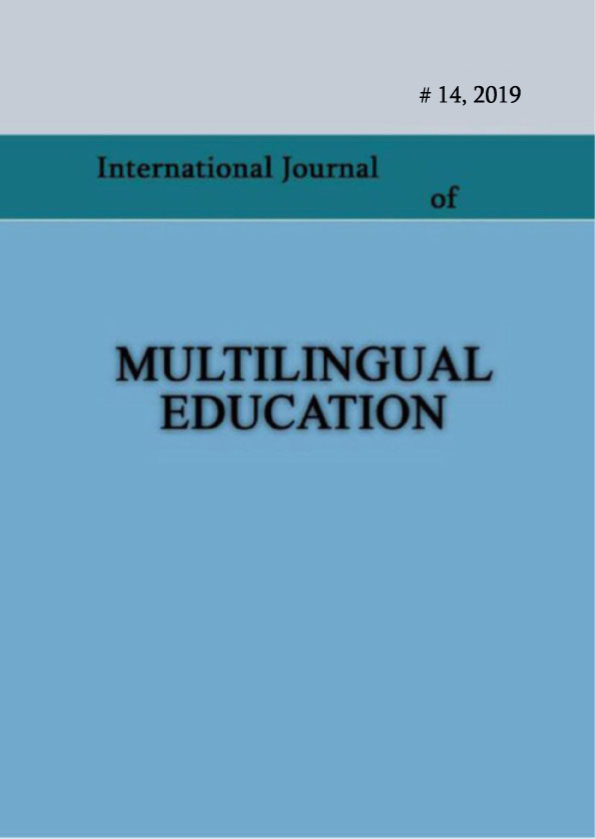For the Relation of the Inversion and the Perfect Semantics in Georgian verbs
Keywords:
Inversion, Static verbs, Model, Perfect semanticAbstract
In Georgian the verbal form comprises the names expressing the subjective-objective references of certain quantity, which shows the representing signs to express the category of the subjective and objective person. However, sometimes the subjective person is expressed by the sign of the objective person or vice versa, which is called inversion in Georgian language. There are many options about the reason of inversion. Bipersonal static verbs are considered as the oldest verbs as believed by many scientists. These are the verbs of feeling and owning, they are inverse, bipersonal and hold the dative construction. We think that inversion cannot be only explained with the static character. There are the verbs, which are not static but are inverse. We believe that it must be one and the same aspect in every case: perfect semantics. In Indo-European languages, the verbs of the perfect semantics have been converted from the class of the lexical words into the grammar perfect. When the Georgian language encountered the need to express the perfect forms respective to Indo-European languages and thus, the third series has been generated and it used the form as the model, belonging to the verbs of bipersonal non-transitional “perfect semantics” in present. This form has been supplemented by preverb, has become dynamic and gradually acquired various semantic nuances characterizing the perfect tense: resultativity, will, evidentiality, interrogative and negative, etc. In our opinion such verbs are not the continuation of the I and II series, they are the standalone link of the verb system, namely the perfect group characterized with the dative construction, which is inverse and always bipersonal.
References
Arn. Chikobava, (2007). “General Linguistic Characteristics of Georgian Language”; Explanatory Glossary of Georgian Language, Vol. 1, 28-85; Tbilisi.
Giorgobiani, T. (2017). Historical Grammar of Greek Language. Tbilisi.
Jorbenadze, B. (1980). Principles of the Formal and Functional Analysis of Georgian Verbs. Tbilisi.
Shanidze, A. (2016). Fundamentals of Georgian Grammar : Novels, vol. 3, Tbilisi: 1980. Uturgaidze, T. Issues of Georgian Lingual System. Tbilisi.
Published
How to Cite
Issue
Section
License
Copyright (c) 2023 Nino Bagration-davitashvili , Meri Nikolaishvili

This work is licensed under a Creative Commons Attribution-NonCommercial 4.0 International License.
Copyright (c) - Authors who publish with this journal agree to the following terms: Authors retain copyright and grant the journal the right of first publication with the work simultaneously licensed under a Creative Commons Attribution-Noncommercial 4.0 International License, which allows others to share the work with an acknowledgement of the work's authorship and initial publication in this journal. Authors are permitted and encouraged to post their work online (e.g., in institutional repositories or on their personal website) prior to and during the submission process, as it can lead to productive exchanges, as well as earlier and greater citation of published work (see The Effect of Open Access). Authors may enter into separate, additional contractual arrangements for the non-exclusive distribution of the journal's published version of the work (e.g., post it to a repository or publish it in a book), with an acknowledgement of its initial publication in this journal.

